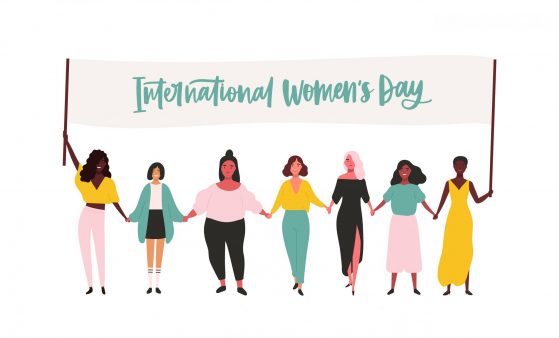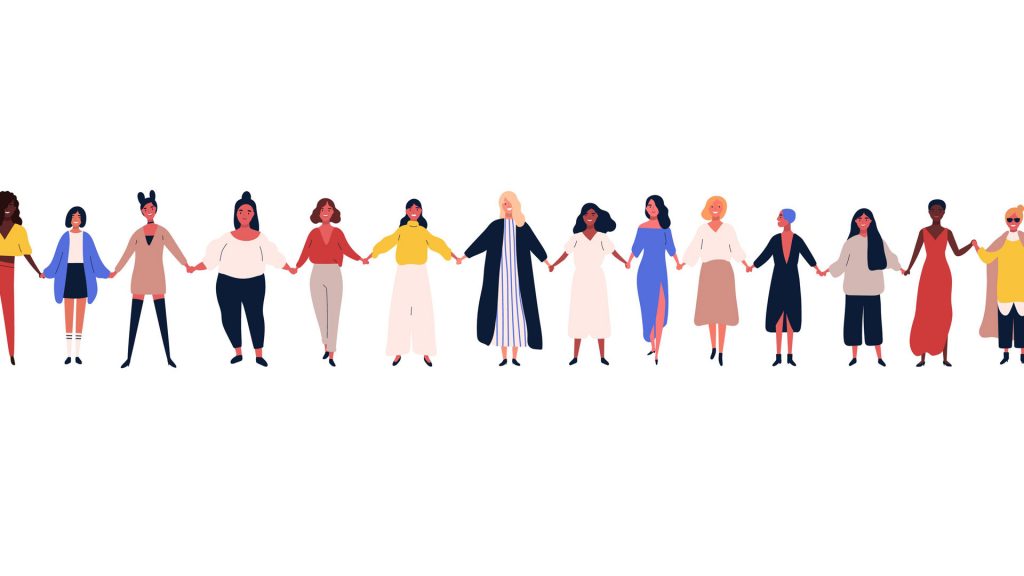International Women’s Day
8 March 2021
International Women’s Day, a day in which societies around the globe celebrate the achievements women have made throughout history in dedication to a world free from gender inequality. It is also a day to challenge the gender discrimination which still occurs today, despite the huge steps societies have already made.
This year I feel particularly stirred by the demonstrations; during my Erasmus at the Universidad de Granada, I have been given the privilege to study History of Women and educate myself about the determined leaders of the world who dedicated their lives to the beginnings of the cause. People like Christine de Pisan, Mary Wollstonecraft, John Stuart Mill and Olympe de Gouges, some of the first people to address the inequalities women faced in society. Olympe de Gouges, for example, sacrificed her life during the chaos of the 1789-1799 French Revolution to finally be heard and revolutionise society’s vision of women and the role they had. Gouges published the basic rights she believed women must have in her ‘Declaration of the Rights of Women and of the Female Citizen’ including the right to be a part of the French National Assembly with equal opportunities to training and jobs which wouldn’t be based on gender but genuine talent – a right which was only put into law in the UK in 1975.

Not only has my right to education without gender inequality given be me a chance to study the history of women, but also enable me to research and analyse the obstacles that can have an impact on the progression of women’s rights in the world today. Earlier this year, I researched and wrote an essay addressing the impact of the Coronavirus on the safety of women and young girls forced to stay at home in the Hispanic World.
In 2020, the world was hit by a deadly pandemic which forced people to shelter in their homes, supposedly safe from danger. Yet although many were protected from the threat of the virus at home, others faced another danger prowling within the four walls of their house. The risk of abuse -economic, physical, emotional, sexual – was heightened with the sudden lack of social and economic security.
Around 400 million jobs were lost due to the pandemic with the majority encompassing the hospitality sector, mainly dominated by women. This has left many vulnerable women to rely on the income of their partners, therefore restricting those most at risk of abuse to flee and spend more time at home in possibly dangerous domestic environments with higher stress levels and tension due to the economic pressures caused by the pandemic.
The impacts of restricted social integration during the pandemic have also had a serious effect on the mental wellbeing of those suffering abuse. Furthermore, for those women suffering physical abuse inflicted by partners or male family members at home, the fear of public and personal safety during the pandemic prevents the urgency to seek medical attention. When many cases of abuse are identified in places such as hospitals, dental surgeries and family planning clinics, many women have been suffering in silence, trapped in their homes with no contact with those who can help.
This past year has certainly taken its toll on so many people, including the most vulnerable women in the world. This International Women’s Day, please take a moment to do your own research. So much information can be found on sites such as:
- https://www.who.int/
- https://www.un.org/en/coronavirus/women-rise-for-all
- https://www.unwomen.org/en/what-we-do/ending-violence-against-women
- https://en.unesco.org/genderequality
Thank you so much for reading!
- February 2026
- January 2026
- December 2025
- November 2025
- October 2025
- September 2025
- August 2025
- June 2025
- May 2025
- April 2025
- March 2025
- February 2025
- January 2025
- November 2024
- September 2024
- August 2021
- March 2021
- January 2021
- December 2020
- October 2020
- April 2020
- March 2020
- February 2020
- January 2020
- December 2019
- November 2019
- October 2019
- September 2019
- August 2019
- July 2019
- May 2019
- March 2019
- February 2019
- January 2019
- December 2018
- September 2018
- August 2018
- July 2018
- June 2018
- May 2018
- April 2018
- March 2018
- February 2018
- January 2018
- December 2017
- November 2017
- October 2017
- September 2017
- August 2017
- July 2017
- June 2017
- May 2017
- April 2017
- March 2017
- February 2017
- January 2017
- December 2016
- November 2016
- October 2016
- September 2016
- August 2016
- July 2016
- February 2016
- October 2015
- September 2015
- August 2015
- May 2015
- March 2015
- February 2015
- January 2015
- December 2014
- November 2014
- September 2014
- August 2014
- July 2014